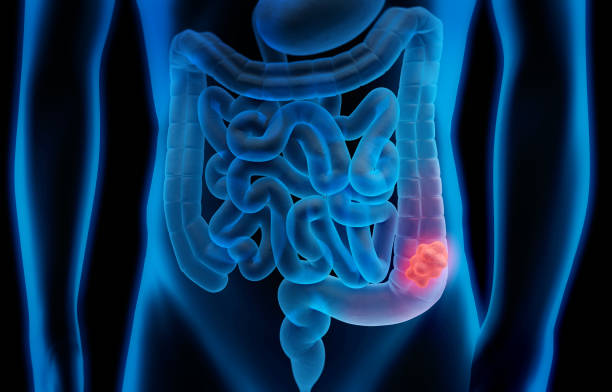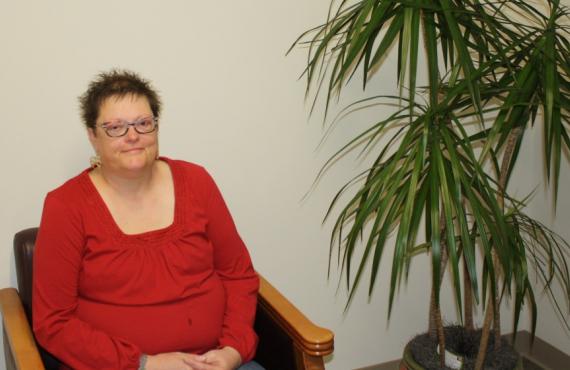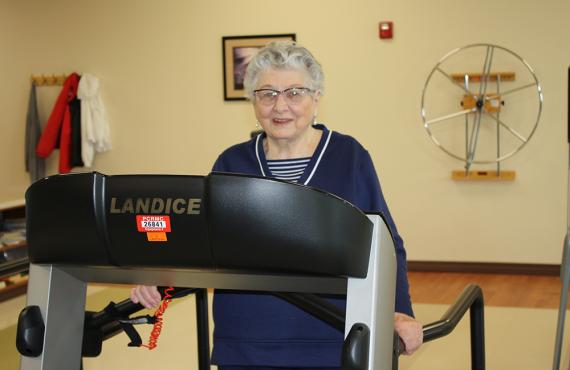Published on March 3, 2022

Read Time: Three Minutes
By Becky Smith, AOCNP
Phelps Health
Colorectal cancer is the third most common type of cancer, affecting both men and women in the United States. Colorectal cancer refers to any type of cancer found in the lower part of the digestive system, including the large intestine (colon) and rectum.

An estimated 52,580 people are expected to die from colorectal cancer in 2022, according to the American Cancer Society. The good news is that the death rate from colorectal cancer has been declining for the last few decades.
While the cause of colorectal cancer is unknown, certain factors increase a person’s risk of getting the disease.
Colorectal cancer is more common as you age, especially in people over age 50. Your race and ethnicity also may affect your chances of getting colorectal cancer. African Americans and Jewish people of Eastern European descent are most at risk.
If you have a personal or family history of polyps, or if you have inflammatory bowel disease, ulcerative colitis, Crohn’s disease or type 2 diabetes, you may be more likely to develop colorectal cancer.
You also may be at higher risk for colorectal cancer if any of the following apply to you:
- Being overweight or obese
- Having an inactive lifestyle
- Smoking
- Eating diets high in red meats and processed meats
- Having low vitamin D levels
- Drinking alcohol often
Eating plenty of fruits, vegetables and whole grains, as well as limiting sugary drinks, red meats and processed meats can help lower your risk.
So, how might someone know that they have colorectal cancer? Common signs and symptoms include, but are not limited to, the following:
- Stomach pain or frequent gas pains
- Change in bowel habits (constipation or diarrhea)
- Blood in your stool
- Feeling weak or tired
- Low iron level, commonly with anemia
- Black or dark-colored stools
If you have one or more of these symptoms, you should see your doctor right away.
Because the incidence of colorectal cancer is rising, especially in younger men and women, screenings are recommended for people starting at age 45. If you are 45 years or older and have not been screened for colorectal cancer, talk with your doctor about screening options.
Colorectal cancer can be diagnosed through a screening colonoscopy or a noninvasive stool-based testing.
Colonoscopies remain the most accurate and versatile diagnostic test for colorectal cancer since they can find polyps, tumors and other abnormalities. Samples of the polyps can be taken to see if they are cancerous.
Screenings for polyps in the colon and rectum can help catch cancer early, which allows the disease to be easier to treat.
If colorectal cancer is found, the disease can be treated in a variety of ways, depending on the stage of cancer. Treatments may include surgery to remove the polyps or tumors, or different therapies, including chemoradiotherapy, chemotherapy and immunotherapy.
A multidisciplinary team often reviews colorectal cancer cases to ensure the best, comprehensive care will be given to each patient.
Get Cancer Care, Close to Home
Becky Smith, AOCNP, is an advanced oncology certified nurse practitioner, who specializes in medical oncology and hematology at Phelps Health. Learn more about cancer care services at Phelps Health by calling the Phelps Health Delbert Day Cancer Institute at (573) 458-3324.

